Description
PRODUCT INFO
The XXLite 2 is a single-surface ultra-lightweight mountain wing designed for serious Hike & Fly pilots and alpinists. This all-new wing delivers significantly improved performance and handling with a higher trim speed and easier landing, compared to its predecessor.
LEGACY
The first of its kind in 2012, the XXLite was one of the most unique and innovative paragliders to ever be put into production. The XXLite series still offers the lightest aircraft in existence when combined with the OZONE F*Lite.
NEXT GENERATION TECHNOLOGY
The XXLite 2 features a unique full span leading edge ram-air inflated tube. This provides a solid leading edge, which accepts lower angles of attack, yielding a higher trim speed and further acceleration. Now comparable with a dual-surface wing, the new speed range widens the safe flyable window and improves performance in real conditions.
LAUNCH & LANDING
The inflation characteristics are still ridiculously easy. The wing feels light and easy to raise overhead – even without touching the risers. The take-off speed is low, allowing you to leave the ground with just a few steps. Most significantly, the landing is vastly improved. The new flare performance allows soft, controlled landings, even in zero wind conditions.
IN ACTIVE AIR
Far more comfortable and confidence-inspiring than the original, it absorbs turbulence in a more controlled manner. The XXLite 2 offers excellent passive safety and is designed for pilots of intermediate ability. It exhibits docile behaviour in test maneuvers. Read about its EN certification here.
Available in sizes 16m and 18m and weighing in at just 1.3 kg (16m size) with a minuscule packing volume, the XXLite 2 is the ultimate hike and fly wing.
SPECIFICATIONS
| SIZES |
16 |
18 |
| Number of panels |
39 |
39 |
| Projected area (m2) |
13.9 |
15.6 |
| Flat Area (m^2) |
16 |
18 |
| Projected Span (m) |
8.0 |
8.5 |
| Flat Span (m) |
9.5 |
10.1 |
| Projected Aspect Ratio |
4.6 |
4.6 |
| Flat Aspect Ratio |
5.6 |
5.6 |
| Root Chord (m) |
2.0 |
2.1 |
| Glider Weight* (kg) |
|
1.37 |
| In-flight Weight Range (kg) |
55-90 |
67-105 |
| EN |
|
D |
* Weights may vary up to 50gm per size due to slight variations in the manufacturing of the fabric used.
MATERIALS
- Top Surface Cloth: Porcher 7000 E71A
- Rib cloth: Porcher 7000 E29
- Upper lines: Edelrid 8000U-050/9200-30
- Mid lines: Edelrid 8000U/190/130/90/50
- Lower Lines: Edelrid 8000U230/190/130/90/50

DOWNLOADS
EN D* WHY? THE XXLITE EN CLASSIFICATION
How does a glider with mostly EN A results end up being classified as EN D? The answer stems from a strange political battle that arose after OZONE introduced collapse lines on modern wings such as the popular Delta series, which were opposed by competing companies who had not yet tested this technology. Instead of investigating this new method of glider development, some of our competitors lobbied to “ban” the use of collapse lines. The end result was that any wing using collapse lines to affect the required EN folding methods was given a D rating, even if all tests exhibited EN A behavior.
The XXLite uses a combined A/B line attachment point on the chord. Due to this, it is impossible to pull the correctly sized EN folds (collapses) without collapse lines. With collapse lines the tests are completed properly and the reopening of the collapse occurs in less than one second (EN A result).
Importantly, it must be noted that EN certification does not measure how a collapse is made. It only measures the wing’s recovery from collapse.
Many single-skin wings require additional (non-flying) collapse lines to properly execute the EN tests. These testing lines automatically register the wing as EN D even if the resulting recovery from the collapse is “A”. Although other test houses appear to have ignored this rule (automatic EN D with use of collapse lines) and were given an overall result below D, we have no intention to mislead pilots, and trust that our customers will understand the flawed test regulations.
The mild character and excellent passive safety of the XXLite can only be understood by reading our description of the wing, not by looking at a misleading EN D classification.







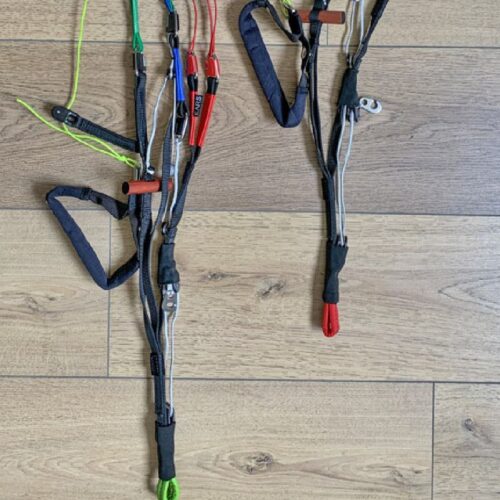
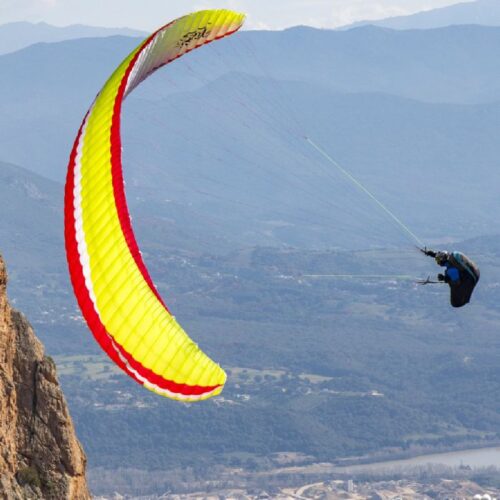
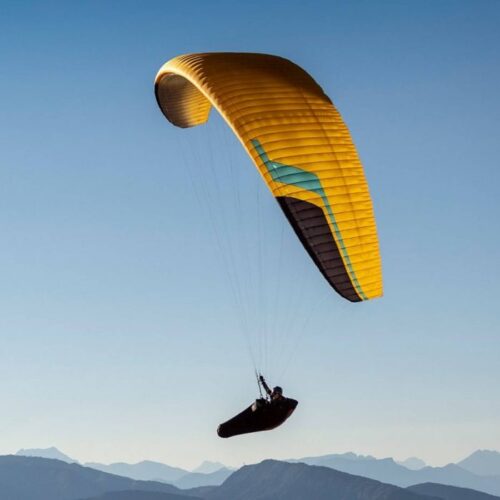
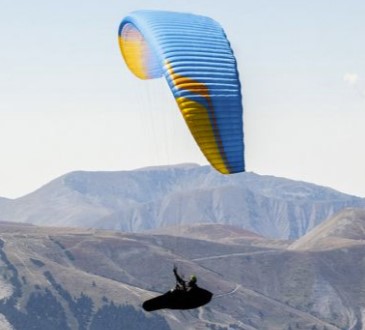
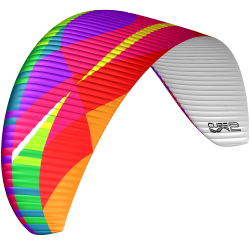
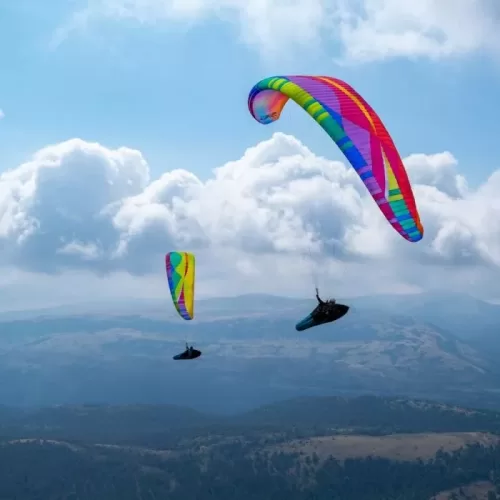
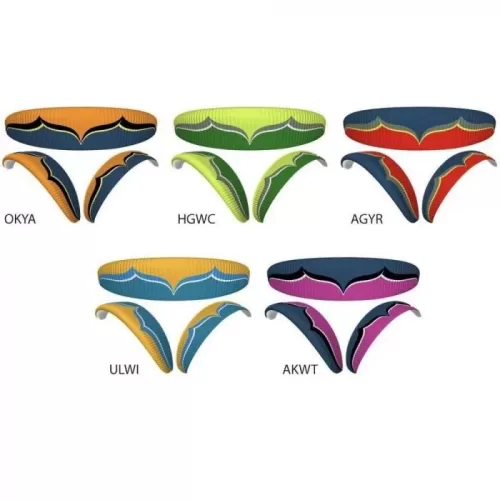
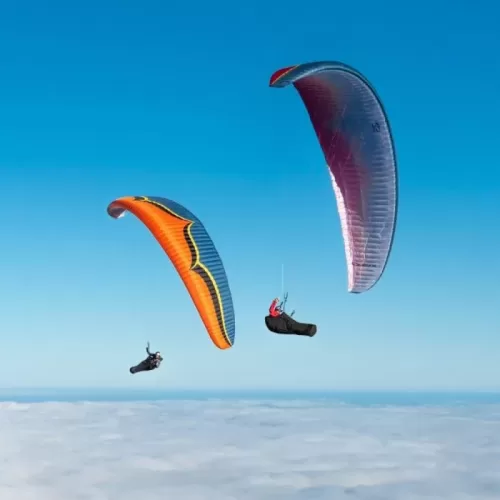
Reviews
There are no reviews yet.